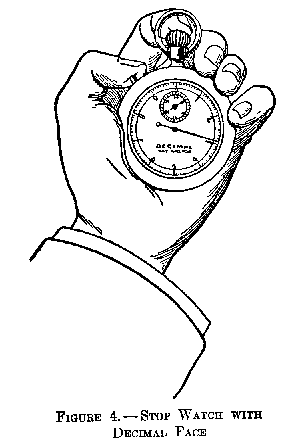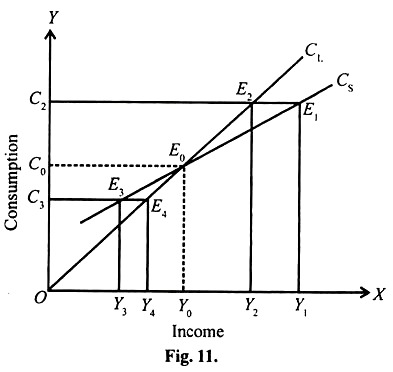
It may be difficult to record delivery precisely when the goods have arrived at the shipping point. Due to constraints to an information system or delays in communication, it is more realistic that there is a slight timing difference between the legal arrangement and the accounting arrangement. FOB shipping point, also known as FOB origin, indicates that the title and responsibility of goods transfer from the seller to the buyer when the goods are placed on a delivery vehicle. Free on board, also fob shipping point means referred to as freight on board, only refers to shipments made via waterways, and does not apply to any goods transported by vehicle or by air. Free on board (FOB) shipping point and free on board (FOB) destination are two of several international commercial terms (Incoterms) published by the International Chamber of Commerce (ICC). Conversely, when you are selling to an overseas buyer, it is in your best interest for the buyer to become responsible as soon as it leaves your loading dock.
The buyer should record an increase in its inventory at the same point (since the buyer is undertaking the risks and rewards of ownership, which occurs at the point of departure from the supplier’s shipping dock). Also, under these terms, the buyer is responsible for the cost of shipping the product to its facility. International and domestic contracts should outline the provisions that include the terms of payment and the place of collection and delivery as agreed upon by both parties – the seller and the buyer. The term free on board (FOB shipping point) should be indicated and identified by the specified physical location. This enables all parties to know exactly when the responsibility for freight charges is passed from the seller to the buyer.

To understand each designation, we must first understand the difference between place of origin and place of destination and freight collect vs. freight prepaid. “Prepaid” means the seller has paid the freight; “collect” indicates the buyer is responsible for payment. Indicating “FOB port” means that the seller pays for transportation of the goods to the port of shipment, plus loading costs. The buyer pays the cost of marine freight transport, insurance, unloading, and transportation from the arrival port to the final destination. The passing of risks occurs when the goods are loaded on board at the port of shipment.
What is the Difference Between FOB Shipping Point and FOB Destination?
Having special contracts in place has been important because international trade can be complicated and because trade laws differ between countries. It’s important to understand the specifics of the FOB terms so all parties know what is expected and who will be responsible for unforeseen charges and fees. Some vendors will offer longer terms for payment, but the start date is based on FOB date. One of the most important aspects of FOB terms is that it helps determine which party owns the freight while it is in transit. If the freight is damaged or lost, the insurance policy of the owner is in effect.
In international shipping, for example, “FOB [name of originating port]” means that the seller (consignor) is responsible for transportation of the goods to the port of shipment and the cost of loading. The buyer (consignee) pays the costs of ocean freight, insurance, unloading, and transportation from the arrival port to the final destination. The seller passes the risk to the buyer when the goods are loaded at the originating port. In modern domestic shipping, the term is used to describe the time when the seller is no longer responsible for the shipped goods and when the buyer is responsible for paying the transport costs. Ideally, the seller pays the freight charges to a major port or other shipping destination and the buyer pays the transport costs from the warehouse to his store or vendors.
Understanding Free on Board (FOB)
Since the package was shipped using shipping point, the title of the goods transferred when GM placed the package on the loading dock. CIF stands for Cost, Insurance and Freight, whereas FOB stands for Free on Board. Both CIF and FOB are agreements used for international shipping when products are transported between a seller and buyer. The main difference between CIF and FOB is who is responsible for the products in transit. EXW stands for Ex Works, an incoterm whereby the buyer of a shipped product pays for the goods when they are delivered to a specified location.
The supplier is only responsible for bringing the electronic devices to the carrier. These international contracts outline provisions including the time and place of delivery as well as the terms of payment agreed upon by the two parties. When the risk of loss shifts from the seller to the buyer and determining who foots the bill for freight and insurance, all depend on the nature of the contract. Realistically, it is quite difficult for the buyer to record a delivery at the shipping point, since this requires proper notification into the buyer’s inventory management system from an outside location.
What is free or freight on board (FOB), and why should shippers … – Supply Chain Dive
What is free or freight on board (FOB), and why should shippers ….
Posted: Thu, 28 Sep 2017 07:00:00 GMT [source]
With the FOB shipping point, the buyer takes the responsibility for lost or damaged goods and freight. The FOB shipping point means the buyer is responsible for the products they ordered once the seller ships the items. Basically, the buyer takes complete control over the delivery once a freight carrier picks the goods. Imagine the same situation as above except the terms of the agreement called for FOB destination. Instead of ownership transferring at the shipping point, the manufacturer retains ownership of the equipment until it is delivered to the buyer. Both parties to not enter the sale transaction into their general ledger until the goods have arrived to the buyer, and the seller retains risk of the goods while they are in transit.
FOB shipping point terms: Who pays for freight?
Any vendor-client transaction should have the FOB terms spelled out very clearly in purchase orders. It’s best for a retailer to have a standard set of terms that can be negotiated on a per-vendor basis. Get free online marketing tips and resources delivered directly to your inbox.
- If the seller is responsible, it also specifies terms for reshipment in case of damages, losses, and thefts.
- That is, the manager looked to see who would be paying for the damage.
- The legal issues raised in FOB designations are nothing new to us here at Freightquote.
- One of the most important aspects of FOB terms is that it helps determine which party owns the freight while it is in transit.
- The seller holds a complete charge over the shipment when it is in transit and needs to ensure its safe delivery.
- CIF (Cost, Insurance, and Freight) is another shipping agreement similar to FOB.
An FOB shipping point agreement is signed and the container is handed off to the freight carrier at the shipping point. Upon delivery of the goods to the destination, the title for the goods transfers from the supplier to the buyer. With FOB shipping point, ownership of goods is transferred to the buyer once they leave the supplier’s shipping point. Just enter the dimensions and weight of your goods and specify the port of shipment, and you’ll get your FOB price calculation instantly. Assume a fitness equipment manufacturer receives an order for 20 treadmills from a newly opened gym across the country. The terms of the agreement are to deliver the goods FOB shipping point.
Let us assume that a company orders office stationery for their newly launched office in the city. They get into a contract with the supplier and agree to specific terms. One of the terms in the agreement will be that the seller will deliver the goods on a FOB shipping point basis. What it means is that the supplier is only responsible for ensuring the supplies get delivered to the origin point.
What does FOB destination mean?
Sellers hold all the responsibility for goods till the time they reach the point of origin. Buyers then assume the responsibility once they receive the possession. CIF (Cost, Insurance, and Freight) is another shipping agreement similar to FOB. Businesses use it when there are transactions across international borders. The primary difference between the two is the ownership of the shipment when it is in transit. In the FOB shipping point, when the buyer gets the responsibility of the goods from the buyer, they can make an entry in their inventory list.

The official accounts entry will reduce the inventory balance and add a new item to accounts receivable. Free on board (FOB) indicates whether the shipper or buyer is responsible and liable for damaged goods during transport. The designation determines which party is responsible for freight charges and at what point the shipment passes from the seller to the buyer. With Free on Board, the seller does have to load the goods on the buyer’s method of transport at the shipping point and may be responsible for them throughout the trip and to the final destination. Free on Board means the seller retains ownership and responsibility for the goods until they are loaded “on board” a shipping vessel.
The transfer of title may occur at a different time (or event) than the FOB shipping term. The transfer of title is the element of revenue that determines who owns the goods and the applicable value. For FOB origin, after the goods are placed with a carrier for transport, the company records an increase in its inventory and the seller records the sale at the same time. For FOB destination, the seller retains ownership of the goods and is responsible for replacing damaged or lost items until the point where the goods have reached their final destination. The term is used to designate ownership between the buyer and seller as goods are transported. International commercial laws have been in place for decades and were established to standardize the rules and regulations surrounding the shipment and transportation of goods.

The seller should report a sale and an increase in accounts receivable. If you’re shipping items internationally, it’s essential to understand the terms and conditions of FOB. What’s even more important, you must record your shipping costs correctly.
Other FOB Terms
CIF is a more expensive contract option than FOB, as it demands more effort and expense on the part of the supplier. To further clarify, let’s assume that Claire’s Comb Company in the US purchases a container of The Wonder Comb from a supplier based in China. There are situations where you may be responsible for covering costs before your goods are on board. The phrase passing the ship’s rail is no longer in use, having been dropped from the FOB Incoterm in the 2010 revision. When the ship’s rail serves no practical purpose, such as in the case of roll-on/roll-off or container traffic, the FCA term is more appropriate to use. Only the most enthusiastic lawyer could watch with satisfaction the spectacle of liabilities shifting uneasily as the cargo sways at the end of a derrick across a notional perpendicular projecting from the ship’s rail.
Incoterms® Rules – ICC – International Chamber of Commerce
Incoterms® Rules – ICC.
Posted: Wed, 29 Mar 2023 08:20:34 GMT [source]
If the seller is responsible, it also specifies terms for reshipment in case of damages, losses, and thefts. In FOB destination, sellers take care of all the costs till they transport the goods to the unloading dock of the buyer. Beyond the unloading point, buyers need to take responsibility and bear any related costs. FOB also determines when a business will record a sale for accounting purposes. If a shipment is designated as FOB Shipping Point, the sale will be recorded in the accounting system as soon as the shipment leaves the seller’s dock.
